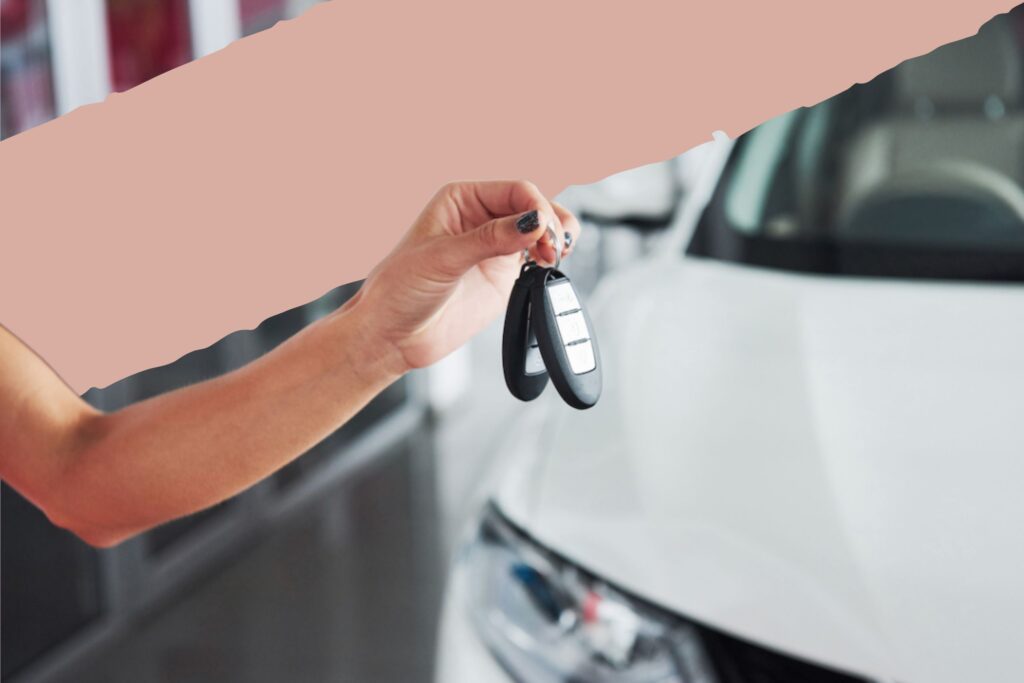From the minute a new car rolls off the forecourt of a dealership, it starts to lose value. Indeed, while it is true that models and makes can vary from one another, the AA reckon a new car drops in value by 10% from the first day it is driven. This value increases to 20% by the end of the first year, with three-year-old cars being worth just 60% of their original price.
Mitigating The Inevitable
However, while depreciation in your car is inevitable, there are some ways to mitigate the drops and help minimise your losses. Read on for some tried and tested tips used by the experts that could see your car maintaining a higher value for longer.
Look After Your Car
It really should be a no-brainer but the better you look after your car, the more likely it will be to hold its value. General maintenance will help, but you should also ensure your car is thoroughly serviced annually or every 12’000 miles (whichever comes first).
By being able to show a prospective buyer of your car its full service history, you will instil confidence that the vehicle has been well maintained and looked after, thereby increasing its potential sales value.
Be prepared for any prospective buyer to carry out a license plate check on the car. This check can provide essential information about the vehicle’s history, such as previous ownership, registration status, and any outstanding issues – pre-empt this by taking care of your vehicle properly.

Choose Models With A Reputation For Longevity
Some car models are renowned for their durability and reliability, which can significantly slow their rate of depreciation. Brands with a strong reputation for longevity tend to hold their value better. Before purchasing a car, research which models are known for their long-term value retention. Cars that are often used as fleet vehicles for businesses, like some saloons and estates, are typically designed to endure high mileage with less depreciation.
Here are some models that have a good reputation for durability:
- Toyota Yaris – This supermini is favoured for its reliability and efficiency, making it a popular choice for city driving. It’s known for holding its value well and running for many years with proper care.
- Volkswagen Golf – A staple on European roads, the Golf is praised for its build quality and longevity. It’s a versatile car that appeals to a wide range of drivers.
- BMW 3 Series – As a premium saloon, the 3 Series is known for its engineering quality and durability. It’s a common choice for company cars due to its blend of performance and reliability.
- Audi A4 – The A4 is another premium model that’s well-regarded for its longevity, often chosen for its comfort and solid build.
- Ford Fiesta – A best-seller in the UK, the Fiesta is known for its reliability and is a frequent choice for drivers looking for a dependable and economical car.
- Honda Jazz – The Jazz is compact but versatile, with a reputation for reliability and a surprisingly spacious interior. It’s a popular choice among those who want a smaller car that can last.
- Skoda Octavia – Offering good value for money, the Octavia is known for its reliability and practicality. It’s a common sight as both family cars and taxis, which is a testament to its durability.
- Mercedes-Benz C-Class – This executive car is popular in the UK for its comfort and build quality. Mercedes-Benz cars are often associated with longevity and the C-Class is a favoured choice in the used car market. For those considering purchasing a used C-Class, using a Mercedes VIN decoder is a smart way to uncover detailed information hidden within the vehicle’s VIN number, helping ensure transparency and confidence in the purchase.
- Volvo XC60 – Volvo has a long-standing reputation for safety and durability. The XC60 is a mid-size SUV that’s well-regarded for its build quality and ability to endure many years of driving.
- Nissan Qashqai – As one of the UK’s favourite crossovers, the Qashqai is known for its reliability and practicality, making it a family favourite.
These models are known for their ability to withstand the test of time, which is a key factor in their slower depreciation rates in the UK market.

Maintain A Comprehensive Insurance Policy
Having a comprehensive insurance policy can protect against unexpected damage that could otherwise affect the car’s resale value. Insurance that covers minor dents and scratches can be particularly beneficial, as maintaining the car’s aesthetic condition is crucial for resale.
Store Your Car Properly
Where and how you store your car can have a significant impact on its value. Keeping your car garaged or under a carport can protect it from weather-related wear and tear, such as paint fading from sunlight or damage from hail. A well-protected car will often retain a better appearance and thus hold its value more effectively.
Choosing carports is a practical alternative to a full garage, offering solid protection from the elements while helping preserve your car’s exterior and long-term resale value.
Keep The Interior In Pristine Condition
The interior condition of your car plays a vital role in its resale value. Avoid smoking inside the vehicle, as the smell of smoke is difficult to remove and can be off-putting to potential buyers. Regularly clean the interior, use protective mats, and consider seat covers to preserve the upholstery. A clean and fresh-smelling interior can make a strong impression on buyers.
Avoid Pointless Journey’s That Increase Your Car’s Mileage
Depreciation in a car’s value comes primarily from two main factors – age and mileage. While there is very little you can do about a car naturally ageing, you can reduce the number of miles you do.
On average, most experts suggest a car’s optimum mileage should be around 10,000 miles per year – meaning, if your car exceeds this number, its value will drop sharply so you should aim to stick roughly around this figure.
Also, it is worth bearing in mind that while it might seem tempting to keep the mileage lower, this can often be a sign to prospective buyers that the car has not been run frequently enough or has only been used for short trips which can considerably increase the wear and tear on components like batteries, brakes and gears – especially if the car fails to reach optimum operating levels. To keep the worth of your car as high as possible, try to keep your mileage within the recommended 10-12k mark annually.

Buy A Car In A Popular Colour
Sure, you might think electric pink is the new chic colour, but it is unlikely others will agree and having an oddly or garishly coloured car could end up being a nightmare when it comes to selling. As a rule, when you are first purchasing the car, try to stick more reserved colours that are likely to appeal to a greater number of people.
While you might have some success trying to sell privately, a used car dealership will realise the limited potential market for a brightly coloured car and offer you a significantly lower value – if they even make an offer at all.
Keep Modifications To A Minimum
Similar to the above, while you may think so-called ‘boy-racer’ mods add a special something to your car, you will likely only end up alienating a significant percentage of your potential market if you make mods to your car that are not widely seen as being beneficial. Moreover, modifying a car can cause significant expense – money you are unlikely to see back (for the reasons noted above).
Use Quality Replacement Parts
If repairs are necessary, use original equipment manufacturer (OEM) parts or parts of equivalent quality. Using cheaper, lower-quality parts can decrease the car’s value, as they may not last as long or perform as well as OEM parts. High-quality parts can also be a selling point when you decide to part with your vehicle.
Document Repairs & Maintenance
In addition to general car care and regular servicing, keep a detailed record of all repairs and maintenance work carried out on the car. This documentation should include dates, descriptions of the work, and receipts. A well-documented maintenance history can provide tangible proof to potential buyers that the car has been meticulously cared for.
Consider The Timing Of Your Sale
The market value of cars can fluctuate throughout the year. For instance, convertibles and sports cars may fetch higher prices in the spring and summer months, while 4x4s could be more in demand during autumn and winter. Timing your sale to coincide with these seasonal trends can help you achieve a better price.
The Bottom Line
In the ever-evolving landscape of the automotive market, understanding the factors that influence car depreciation is crucial for any savvy car owner in the UK. In doing so, you’ll be well-equipped to navigate the depreciation curve and ensure that when the time comes to sell, your car stands out in the bustling UK market, promising you the best possible return on your automotive investment.





